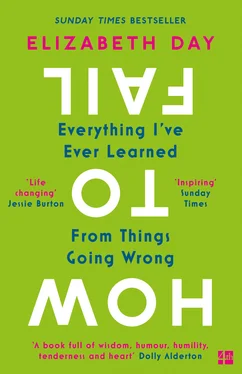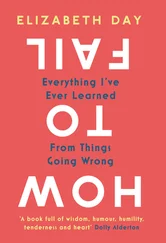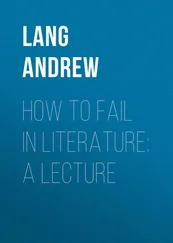For the next three months, I went to an office in a red-brick house in Queen’s Park, north-west London, every Wednesday morning before work. My therapist was an attractive woman in her late forties with shoulder-length greying hair and a penchant for statement Bakelite necklaces. She would open the door to me when I arrived and not say anything to me beyond a cursory hello, and I would follow her up the stairs trying to make agonising small talk until I realised after a few weeks that there was no point in trying to charm her. The awkward silence was part of the therapy. It was about making me feel comfortable with being uncomfortable. It was about making me choose honesty without worrying about what she would think of me and whether she would like me or not.
Her therapy room was kitted out, as I have since discovered, like almost every therapy room I’ve ever been in: anonymous Ikea furniture, a generic pot-plant, a box of tissues on a low table and a subtly placed clock so that you can see when your session is coming to an end. Within those four walls, I made some interesting discoveries. One of them was that your twenties could be a ‘gestation period’.
My therapist would couch her opinions in a series of questions, designed to make me feel I’d cleverly come to conclusions about my own behaviour by myself. And so it was that one day, she said: ‘Do you think that maybe, you’ve been through quite a lot already and been operating at a fairly frantic pace, and that perhaps this is a necessary time of reflection, of allowing the next phase to hatch?’
It was an incredibly helpful moment. It allowed me to let go of some of the ‘oughts’ and the ‘shoulds’ that had been crowding out my thoughts, those shrill internal critics that were taunting me with the idea of what other people were doing and how I was failing to keep up. I relaxed a bit.
At my thirtieth birthday party, held in an upstairs room at my favourite pub with a playlist designed especially by me and full of 1990s hip-hop, I felt happy. In fact, I felt relieved to have made it through my twenties and relieved that I no longer had to worry about turning thirty. It was done. I was a little bit wiser. A little bit more self-aware. In a few months’ time, although I did not know it then, I would sell my first novel.
Looking back now, I suppose I would categorise my twenties as a decade of impatience, where I wanted to be at the mythical happy end point, but had to sort through a whole lot of stuff to get there. They were also a decade of worrying I wasn’t doing them right, that I wasn’t being footloose enough or responsible enough and that, caught in the unsatisfactory mid-point between the two, I was failing to make the most of them.
The author David Nicholls, who spent most of his twenties trying and failing to make it as an actor before turning his hand to writing, said that he now realised ‘there are ways out, that we’re not fixed at the age of twenty-two, twenty-three, that life is long and you can try things for a while and if they don’t work out, do something else’.
But of course, it’s only when we’re older and have knocked about a bit that we can conclude there is no uncomplicatedly happy end point. There are a series of points – some happy, some sad, some simply quietly contented – and each one will be different from how we imagined it. Not better or worse; just different. And perhaps what surviving your twenties makes you realise is that life, after all, is texture.
‘I feel like I did it [my twenties], I committed to it,’ Phoebe Waller-Bridge said when I spoke to her about her own decade of transition. ‘I’d really like to have the skin from my twenties,’ she joked, ‘but I prefer my heart and my guts now.’
That’s the thing. Because however much you might feel you’re failing at your twenties when you’re living through them, they are a necessary crucible. Your twenties are spices in a pestle and mortar that must be ground up by life in order to release your fullest flavour. By the end of them, you’ll have more heart and more guts – and you’ll know never to roast broccoli again.
Конец ознакомительного фрагмента.
Текст предоставлен ООО «ЛитРес».
Прочитайте эту книгу целиком, купив полную легальную версию на ЛитРес.
Безопасно оплатить книгу можно банковской картой Visa, MasterCard, Maestro, со счета мобильного телефона, с платежного терминала, в салоне МТС или Связной, через PayPal, WebMoney, Яндекс.Деньги, QIWI Кошелек, бонусными картами или другим удобным Вам способом.












